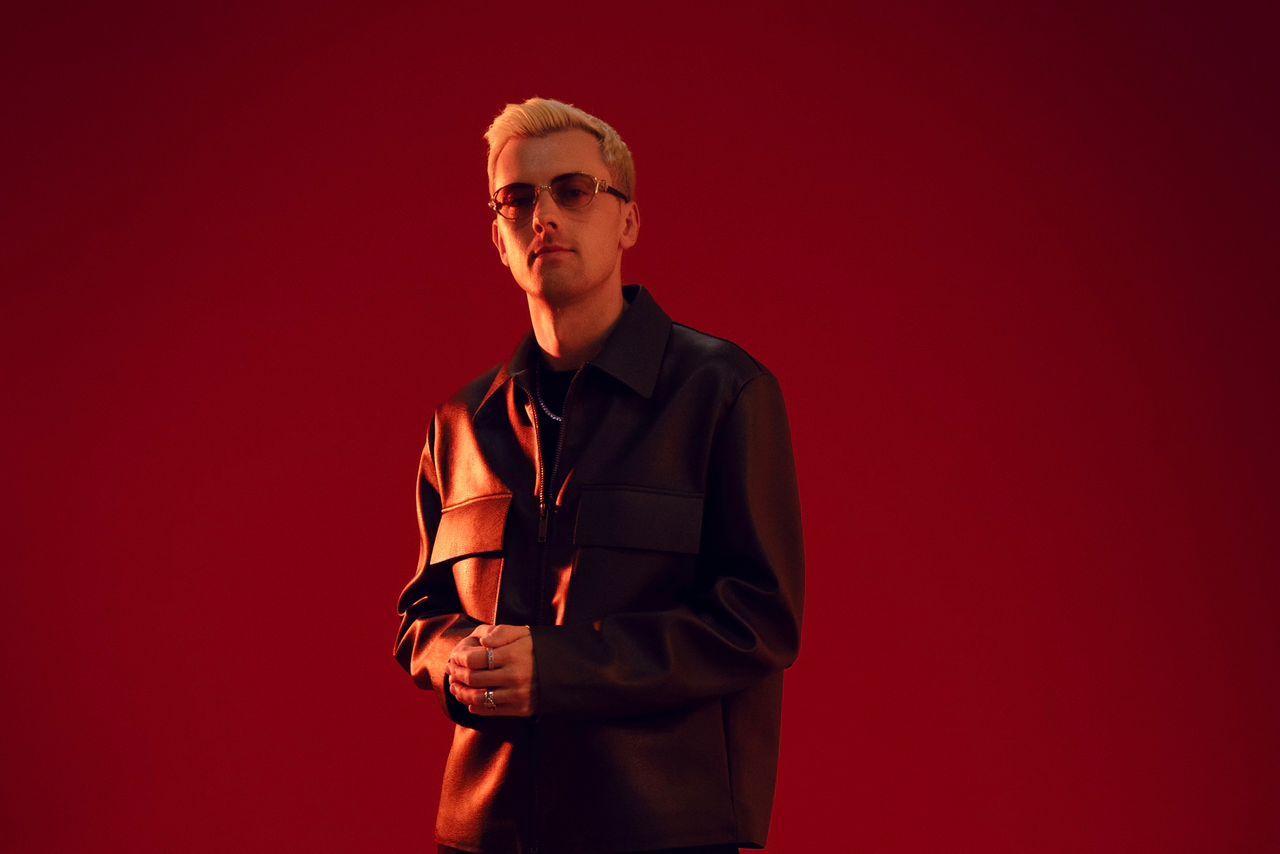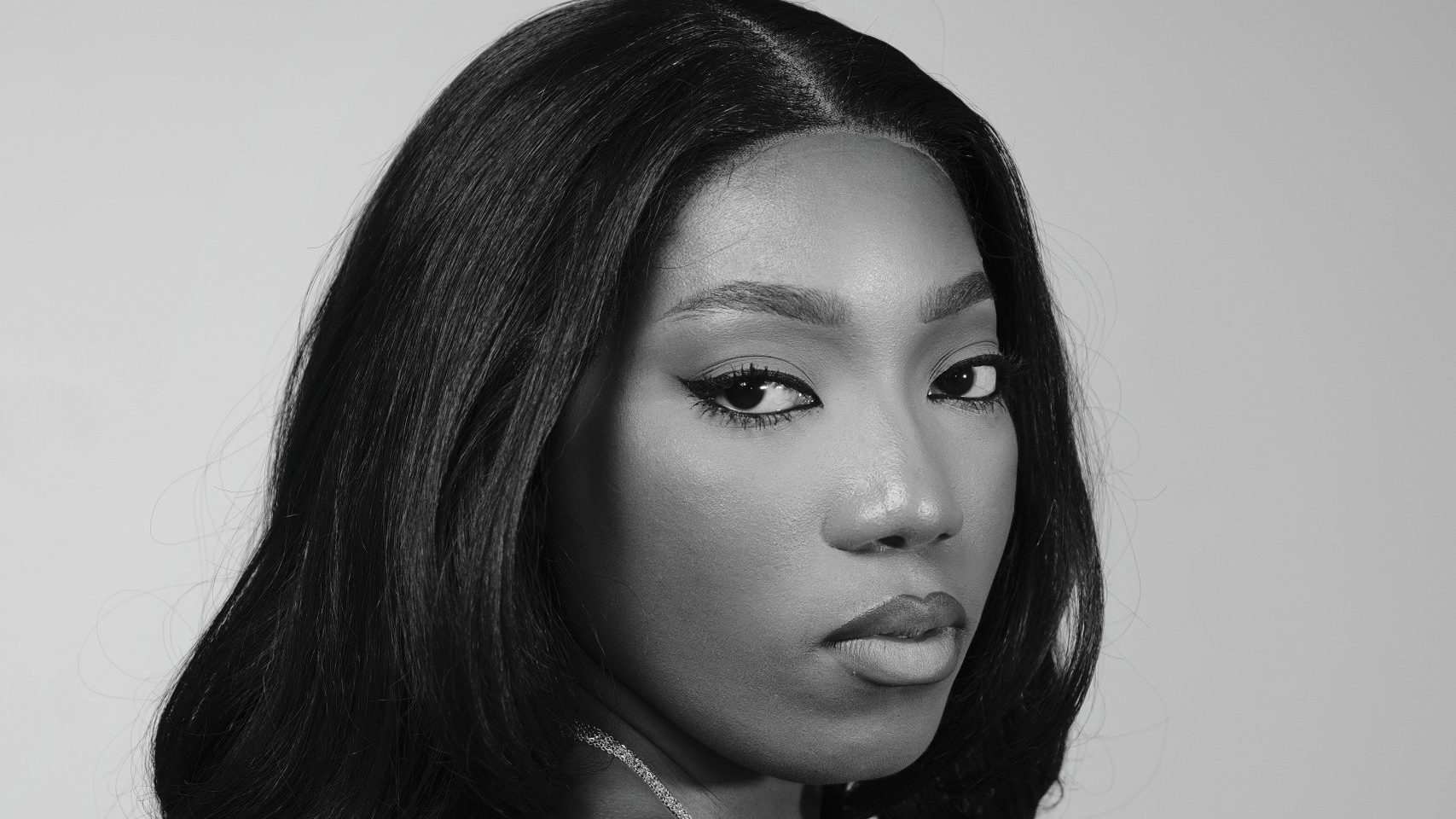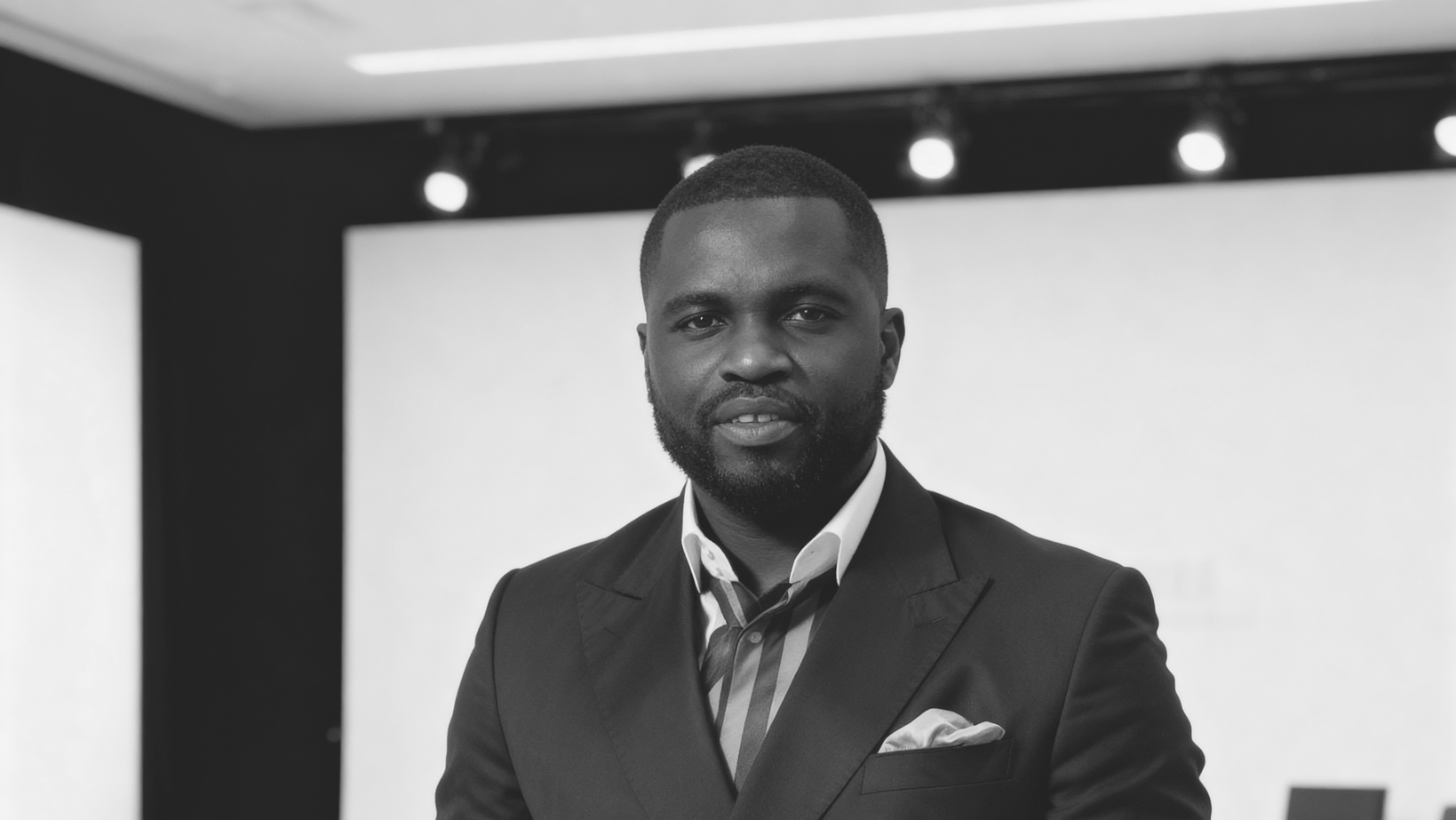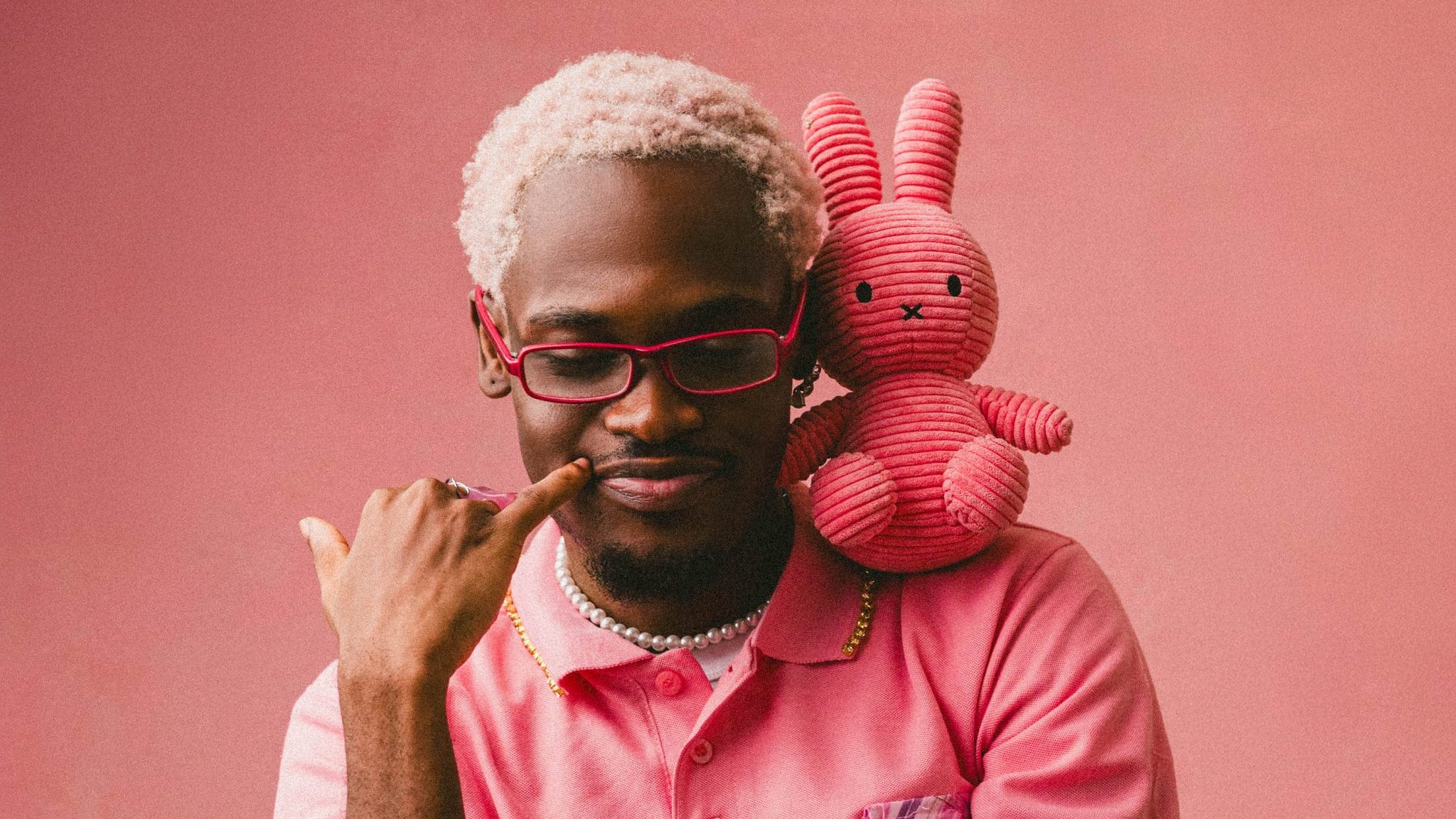At first glance, London-based James Grey (better known as DJames) probably isn’t what you’d expect the hottest Afrobeats DJ in the world right now to look like. But it all makes sense once you see his resume: Red Bull 3Style UK Champion (2019), world-touring DJ behind sets that have gone viral on social media, producer, curator, and more. With a signature style that includes seamless transitions between genres and over a decade of experience, including truly unique escapades like playing at Europe’s first Major League Baseball game and Saudi Arabia’s first international tennis tournament, DJames is definitely one of one.
He spoke with us on everything from viral sets to respectfully championing multiple different cultures; his obsession with discovering new music, his sold-out Lagos show and which Nigerian artists he currently has his eye on. Read on for the full conversation.
You’re known as the ‘King Of Blends’. What does that title mean to you beyond the technical aspect? What philosophy drives how you approach blending cultures through music?
I think growing up in the UK, especially in London, you’re exposed to a lot of different genres and influences. During my early days DJing at student events, I was on lineups with rappers, rock bands, garage DJs and all kinds of other acts. My approach was always to try to bring the music I liked into their world, so fusing genres together is something that came out of necessity. I was trying to fit in but also stand out at the same time, if that makes sense! Today, the title really represents what I’m trying to do by sharing music from Africa with the world; and my own music and experiences with Africa.
You specialise in Dancehall and Afrobeats but work with artists across genres. How do you see your role in bridging different musical worlds? What responsibility do you feel toward representing Caribbean & African cultures authentically?
I think after visiting Africa and the Caribbean so many times, my perspective really changed. There are so many talented artists who don’t want to be pigeonholed musically, and I see it as my responsibility to help them create music that can travel globally. It’s a huge responsibility for sure, and one I don’t take lightly. It’s why I make sure I actually travel to these countries and understand what is happening on the ground. I could sit here looking at charts all day, but that doesn’t always tell the whole story.
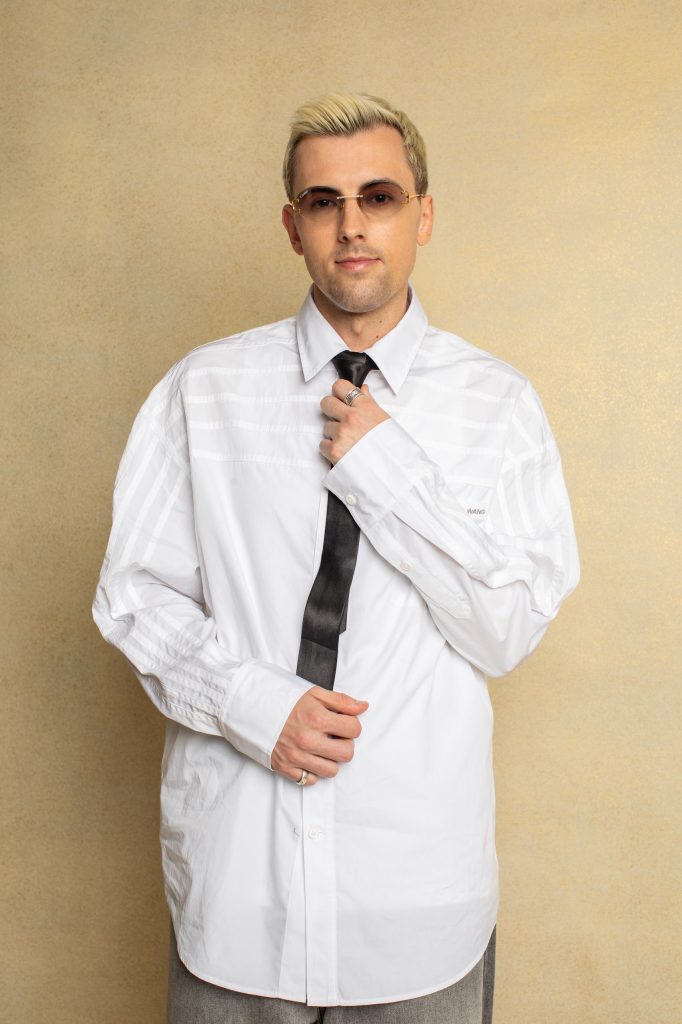
You’ve said you’re “passionate about pushing Nigerian music and making it more enjoyable for a global audience.” What does that responsibility feel like, being based in London but serving as a cultural bridge?
It can be a little overwhelming at times because a lot of what I’m doing has never been done before. There are countless occasions where I’m playing in a city that has never had a dedicated Afrobeats event, or I’m playing a song to someone who has never heard of the genre. I do enjoy it, though! New music discovery is what drives me, and I try to share that wherever I go.
You mentioned previously that Afrobeats is “where Hip Hop was during the early 90s” – still in early stages despite seeming huge. What needs to happen for it to reach that next level globally, and how do you see your role in that cultural shift?
Afrobeats is in a great place now, so this was not a negative statement by any means, more an indication of how much more there is to come. The most important thing is that the artists continue to evolve and make great music. Strategic partnerships and collaborations will also be key. Burna Boy’s impact in the UK is a great example; he worked with artists like J Hus & Dave to build his following here. My role is to help artists reach a wider audience, whether that’s through playlisting the songs for DJs to play, performing them myself in new territories, or creating songs which have crossover potential.
Take us back to 2019 when you won Red Bull 3Style UK. What was going through your mind when they announced you as champion? Was that the moment you realised DJing wasn’t just a hobby but your path?
Well, I had already been DJing for over a decade at that point, so I think my path was already decided! I think the biggest thing winning the title did for me was validate my style of DJing. It might not have been technical in the sense of scratching and beat juggling, but I think I had a fresh perspective musically, which really stood out to the judges. I honestly couldn’t believe I won. If you ever see the video, you’ll see I’m going through about 20 emotions in 30 seconds!
Looking back at your 2014 university interview, you mentioned being inspired by Diplo & Kanye West “for the way they push boundaries while remaining commercially relevant.” How has your own approach to pushing boundaries evolved since then?
I think the concept and strategy for me are still the same. In the last few years, I’ve found my niche and built an incredible fan base, which I just want to keep growing day by day. I think it’s just a case of releasing more music that represents my own upbringing, and putting on more headline shows so people can see what my vision for those is.
You’ve DJed everywhere from baseball games to Saudi Arabia’s first international tennis tournament. How do you read a room you’ve never been in before?
That’s just down to preparation and experience. At one point in time, I felt like someone was going to put me on a stage and make me DJ for 100 hours straight playing pop, reggae, hip hop, house, funk, disco and any other genre you could imagine. I don’t know where that came from, but it helped me prepare for any situation that might get thrown my way. Nowadays, I get to travel around the world playing the music I actually like, so that’s a relief!
You described having “an obsessive compulsion” with music discovery – losing “hours and hours of sleep just going through music.” What drives that obsession? What are you searching for in those rabbit holes?
That’s just my personality generally! I think you find with most true creatives that they have some sort of trait like this that keeps them constantly pushing. I guess I’m just looking for music that excites and inspires me, and also for those gems that make my sets unique.
You mentioned maintaining “spreadsheets of blogs and radio shows” before social media. How has your music discovery process evolved, and what sources do you rely on now?
I still have those same sheets! Fortunately, more people come to me with music these days, now that I have the platform. Artists and their teams constantly send me songs, I always keep an eye on social media trends, and my job at Beatport gives me direct communication with all the labels, so I know what’s coming.
Your CulturFM set went viral and really resonated with a lot of people. What was different about that particular set that resonated so strongly?
People consume music in very different ways. Some are surface level and will have it on in the background, some are listening to the chord progressions of the songs I’m mixing, some just want to hear popular songs. I might be wrong, but I think the success is due to the fact that it appeased all those different groups of people. I tried to tell a story with the music, and there were new and classic records being mixed in a way people hadn’t heard before.
You’ve worked with Drake, Burna Boy, and Chris Brown, among others. What’s the difference between blending their music and actually working with them directly?
DJing in front of these artists is stressful because you want to make your own mark on their music without making a change that will upset them! That was always the risk with the blends I did on social media. Some artists appreciated the creativity and the fact I helped push their song; others, I’m sure, thought I’d ruined it!
Your first solo Lagos show sold out in just one day and had to be scaled up. What was it like finally meeting your Nigerian fanbase in person after building that community online?
It was the highlight of my whole career so far! We booked a small venue initially because I genuinely had no idea how many people would pay to see me. We didn’t announce it as ‘DJames & Friends’ or tease any surprise appearances, as I wanted to see who would come for me alone. The response was overwhelming, and seeing those people in real life was such a special moment.
You mentioned in a previous interview that you want to “find those artists who want to grow outside of Nigeria beyond just making music locally” and “get them into major festivals.” Who are you watching right now that fits that vision?
There are so many! I have a hard drive full of songs I’ve made with some of them too, which I can’t wait to release. I can’t speak for their own plans, but I’d love to see artists like Crayon, Shoday, Qing Madi, Fola and Young Jonn touring more worldwide and performing on the biggest stages!
You also mentioned having “a great opportunity to test music out for all these artists across the US, Europe and even Asia.” How does that testing process work? What makes a track ready for global audiences?
The crowd will let you know very quickly if they’re feeling it or not! It’s definitely more difficult to play new music when you’re being booked as a headliner with sometimes only 45 minutes to perform, but I make sure I test 1 or 2 new songs each time. It’s also important to position them in the set in a way that gives them the best chance of being well received by the audience. That’s just down to experience once again, I think.
What does it mean to be championing these genres from London, given the city’s own complex history with Caribbean and African communities?
Having only lived here 8 years, I can’t really speak on how it was much before that, but right now, there is a huge appetite for this music. I think it’s the best place to be as a base, as all the artists regularly come here too. I only do a few shows here per year now though; my main focus is to reach as many new countries as possible while spreading the sound.
Are there any collaborations or events you’re looking forward to this year?
Event-wise, I want to do headline shows in Lagos & Nairobi in December. I just hope we can somehow top last year, because it really was an incredible night for me and the fans! On the music side, I have a lot of songs I want to release; it’s just a case of timing. You’ll have to wait and see who those are with, though, sorry!
Where do you see the role of DJs heading in the next few years, especially with tech like AI and streaming platforms evolving?
I think there will always be a demand for live shows and social gatherings. Granted, some DJs will lose their work to playlists and the likes, but if you can build a real community and put on a show that is worth seeing, I don’t think AI can replace that. Or at least I hope not!
What advice do you have for DJs trying to monetise their brand in today’s digital era?
People don’t pay for you as a DJ; they pay for your audience. So, build a community and create a product that people can get behind. I think young DJs give up too quickly. You have to find what you’re passionate about and stick with it for a long time to have success at the highest level.
